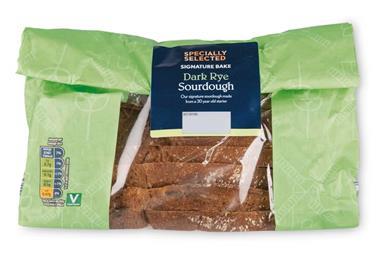
Sometimes the simple pleasures in life are the best. Sunshine, fish and chips, lie-ins, strawberries and cream, half-price deals. Only, as Daphne Smallman, 76, discovered while shopping at her local Tesco in Sheldon in June 2011, some pleasures aren’t quite as simple as they first appear.
There was something unusual about a display of ‘half-price’ strawberries, she noticed. Quite simply, she had never seen them sold for ‘full price’. She raised her concerns with Tesco, which blanked her. So she complained to Birmingham Council Trading Standards, which didn’t.
They brought a case against Tesco based on the Unfair Trading Regulations Act (2008), which states, in effect, that an offer price must not run for longer than the original price. Tesco had sold the offending 400g punnet at a ‘full price’ of £3.99 for just seven days before slashing them to ‘half-price’ for an epic 14 weeks.
Judge Chambers fined Tesco £300,000 and called its actions “shocking”, as Tesco pleaded guilty in Birmingham Crown Court last week.
But as Tesco held its hands up, it insisted it was a “mistake”. It offers “over 40,000 products, with thousands on promotion at any one time,” it explained, the inference being it couldn’t keep track.
Four key principles Tesco, Sainsbury’s, Morrisons, Waitrose, M&S, Aldi, The Co-op Group and Lidl signed up to in November 2012:
1. Prices must not be artificially manipulated to make future discounts more attractive.
2. Prices marked as discounts for longer than a higher price was charged can no longer be described as discounts.
3. Any reference to a previous price should be a fair comparison, and not refer to historic prices.
4. retailers must ensure a ‘value’ pack size cannot be bought in the same volume for less anywhere else in store.
So is it really that difficult? Is Tesco the only supermarket making such mistakes, or is it an industry-wide issue? And if so, will this case open the floodgates to a series of fines?
Promotions expert Colin Harper, MD of Storecheck Marketing, believes mistakes do happen in supermarkets. However, Tesco’s strawberry promotion was not one of them. “Mistakes on the magnitude of a nationwide offer just don’t happen,” he claims.
He’s equally clear it’s not just Tesco that’s been doing as much of this as they can get away with. The whole industry has been breaking the rules “on a daily basis” for years, he claims. “And why wouldn’t they?”
Besides, not only do most retailers want endless promotions - the vast majority of manufacturers and customers want them, too, he argues.
‘A deal’ - even if it isn’t
“Shoppers don’t normally complain and they certainly wouldn’t vote for cutting back promotions. They see it as a deal, even if it isn’t. Plus, for many brands, as little as 10% of product is sold at no discount, so they don’t just want promotions, they need them.”
Assosia MD Kay Staniland offers a more forgiving stance. An expert in promotions, she suggests retailers are trying to stay within the law, but are so determined to find new ways to give customers the deals they demand they are slipping up.
“Consumers want everything on promotion, so suppliers and retailers are caught between a rock and a hard place. One way to get round it is to change the mechanic every few weeks. That way they can keep a deal running for up to 52 weeks and remain in compliance.”
Where they come unstuck, she adds, is that “with all the products, all the promotions, and all the price-matching going on between them, it’s hard to manage it.”
Yet as Tesco said outside court, “even one mistake is one too many”. Indeed, while the promotion is understood to have made a tidy £2.3m profit, if you multiplied the £300,000 fine by the number of Tesco SKUs, each of which may change every week, we’re talking over a £600 trillion liability.
So can supermarkets now expect a flood of such fines now the issue is on the public radar?
Unlikely, according to Staniland, who says the Tesco case was less a declaration of war on tardy promotions and more a shot across the bows to say: “We are watching you and we know what you are doing.”
And Harper says the OFT told him: “We can’t take Tesco on. They have more lawyers.”
That’s not to say supermarkets aren’t concerned, however. With the OFT announcing in the same week an investigation into misleading promotions among the top six furniture retailers, the industry is potentially facing a battle on two fronts.
One leading supermarket CEO told The Grocer: “The government needs to decide who manages pricing: the OFT, or the courts?”
Tighter guidelines
Since the strawberry case emerged in 2011, however, Tesco and a number of its rivals have worked with the OFT to tighten up the guidelines set in the original Unfair Trading Regulations Act (2008), inking a revised deal in November 2012.
An OFT spokesman says the improvements came about because although it’s “quite rare” for the likes of Tesco to end up in court, there were enough cases coming to light to generate “significant and widespread concern”. The result is a “set of principles they have all signed up to, in order to address consumer concerns and restore credibility in supermarket promotions”.
A Tesco spokeswoman adds the guidelines have changed “completely” and are “much simpler and more straightforward”. It has also undertaken a “massive training programme” for more than 300 buyers and introduced a team that “continually monitors every price and promotion entered into our central system so buyers can’t enter an erroneous promotion that might break the rules.”
She adds Tesco has become “extra vigilant”. Just as well. Because if it, or any other supermarket, doesn’t, there will always be a gimlet-eyed pensioner out there to put them straight.



















No comments yet